
FACULTY
Eric Lazartigues
Director of the Cardiovascular Center of Excellence
Cardiovascular Department
- elazar@lsuhsc.edu
- Medicine
- Ayushi Patel was awarded a Research Recognition Award from the Neural Control and Autonomic Regulation(NCAR) section of the American Pysiological Society. She will give a short oral presentation of her abstract during the NCAR trainee awards session at the 2026 American Physiology Summit (2/26)
-
Dr. Eric Lazartigues was selected to present the 2026 Carl Ludwig’s Distinguished Lecture of the Neural Control and Autonomic regulation section at the American Physiology Summit (1/26).
-
Dr. Uma-Priya Mohan’s review “Microglial Activation and RAS Signaling: A Dual-Edged Sword in Neuroinflammation” was published in The American Journal of Physiology (1/26).
- Dr. Vahideh Tarhriz and Dr. Huijing Xia’s research study “Sex-Specific Exosome Cargo Reveals Potential New Mechanisms of Salt-Sensitive Hypertension" was published in Hypertension (12/25).
- A collaborative study with Dr. Ifechukwude Biose’s laboratory "Diurnal behavioral outcomes and BBB integrity in adult male SHR and WKY rats" was published in Scientific Reports (11/2025).
- Dr Lazartigues’ editorial "Hypertensive remodelling: when bigger body means bigger problems" was published in Cardiovascular Research (11/2025).
- A collaborative study with Dr. Rinku Majumder’s laboratory "Estrogen and obesity synergistically suppress protein S via HIF1α, enchancing thrombosis potential" was published in The Journal of Clinical Investigation (11/2025).
- Mortaza Eivazi’s research study "Deep learning-driven proteomics analysis for gene annotation in the renin-angiotensin system" was published in the European Journal of Pharmacology (11/2025).
- A collaborative study with Dr. Srinivas Sriramula’s laboratory "Targeting Kinin B1R Attenuates Hypertension Through AT1R-Dependent Mechanisms" was published in Circulation Research (8/2025).
- A collaborative study with Dr. Jiaxi Xu’s laboratory "ADAM17 Supports Disinhibition of Pre-sympathetic Glutamatergic Neurons Through Microglial Chemotaxis" was published in Neuroscience Bulletin (8/2025).
- Dr. Vahideh Tarhriz’s review "CircRNA-based AntimiR therapy: A novel approach to hypertension treatment" was published in Non-coding RNA Research (8/2025).
- Dr. Kavaljit Chhabra’s review "Molecular dissection of the role of ACE2 in glucose homeostasis" was published in Physiological Reviews (2/2025).
- Dr. Mona Elgazzaz’ research study "UBR1 Promotes Sex-Dependent ACE2 Ubiquitination in Hypertension" published in Hypertension (11/2024).
- A collaborative study with Dr. Xinping Yue’s laboratory "Myeloid deficiency of heparan sulfate 6-0- endosulfatases impairs bone marrow hematopoiesis" was published in Matrix Biology (10/2024).
- Dr. Uma Priya Mohan and Dr. Vahideh Tarhriz both received the 2024 Trainee Advocacy Committee Poster Award from the American Heart Association Hypertension Council (9/2024).
- Dr. Mona Elgazzaz’ review “Angiotensin-Converting Enzyme 2 Posttranslational Modifications and Implications for Hypertension and SARS-CoV-2: 2023 Lewis K. Dahl Memorial Lecture” was published in Hypertension. (7/2024)
- A collaborative study with Dr. Hanif Kashif’s laboratory “Effect of Diminazene Aceturate, an ACE2 activator, on platelet CD40L signaling induced glial activation in rat model of hypertension” was published in International Immunopharmacology. (7/2024)
- A collaborative study with Dr. David Lefer’s laboratory “Adjunctive therapy with an oral H2S donor provides additional therapeutic benefit beyond SGLT2 inhibition in cardiometabolic heart failure with preserved ejection fraction” published in the British Journal of Pharmacology (7/2024).
- A collaborative study with Dr. Xuebin Qin’s laboratory “Upregulation of inflammatory genes and pathways links obesity to severe COVID-19” was published in Biochim Biophys Acta Mol Basis Dis. (7/2024).
- Dr. Mona Elgazzaz’ research study “Maternal Western diet programs cardiometabolic dysfunction and hypothalamic inflammation via epigenetic mechanisms predominantly in the male offspring” was published in Molecular Metabolism (2/2024).
- Dr. Uma Priya Mohan was selected to receive the 2024 Research Recognition Award from the Neural Control and Autonomic Regulation at the American Physiology Summit. (2/2024)
- A collaborative study with Dr. Xinping Yue’s laboratory “Cardiovascular dysfunction induced by combined exposure to nicotine inhalation and high-fat diet” was published in the American Journal of Physiology (1/2024).
- A collaborative study with Dr. Abraam Yakoub’s laboratory “Stable, neuron-specific gene expression in the mouse brain” was published in J Biol. Eng. (1/2024).
- Dr. Vahideh Tarhriz, PhD joins the lab as a Postdoctoral Fellow (9/2023).
- Dr. Eric Lazartigues was selected to present the 2023 Lewis K. Dahl Memorial Lectureat the American Heart Association Hypertension conference.
- New publication entitled “New approaches targeting the renin-angiotensin system: inhibition of brain aminopeptidase A, ACE2 ubiquitination, and angiotensinogen” published in Canadian Journal of Cardiology (6/2023).
- New collaborative paper entitled “Nedd4-2 upregulation is associated with ACE2 ubiquitination in hypertension” published in Cardiovascular Research (5/2023).
- Dr. Mona Elgazzaz received the 2023 Neural Control & Autonomic Regulation (NCAR) Section Research Recognition Award for postdoctoral research from The American Physiological Society (4/2023).
- Dr. Uma Priya Mohan, PhD joins the lab as a Postdoctoral Fellow (4/2023).
- Dr. Mohammed Alnoud, PhD joins the lab as a Postdoctoral Fellow (3/2023).
- Dr. Lazartigues receives the Louis Levy, II, MD Professorship of Research Cardiology (12/2022).
- Dr. Lazartigues was nominated Director of the Cardiovascular Center of Excellence at LSU Health - New Orleans (6/2022).
- Dr. Lazartigues was awarded a new 4-year R01 from NHLBI to study ACE2 downregulation in hypertension (4/2022).
- Dr. Mona Elgazzaz successfully defended her dissertation. She will graduate in May 2022. For now, she will remain within our group as a Postdocotoral Fellow. (4/2022)
- Dr. Mona Elgazzaz was selected to present her data in the Brain Control of Food intake and Peripheral Metabolism Topic sponsored by the American Diabetes Association. Her oral presentation is scheduled during the ADA 82nd Scientific Sessions meeting in New Orleans on June 5th 2022. (3/2022)
- Dr. Clara Berdasco was selected to receive the 2022 Endocrinology and Metabolism Section Steven M. Horvath Professional Opportunity Award and the Martin Frank Diversity Travel Award of The American Physiological Society. Dr. Berdasco was also selected to present her data in the New Investigator and Research Recognition Awards Session Featured Topic sponsored by the APS Endocrinology and Metabolism section. Her oral presentation is scheduled during the Experimental Biology meeting in Philadelphia on April 5th 2022. (2/2022)
- Dr. Navya Lakkappa was selected to present her data in the Cellular Signaling and Transduction Featured Topic sponsored by the APS Cell and Molecular Physiology section. Her oral presentation is scheduled during the Experimental Biology meeting in Philadelphia on April 3rd 2022. (2/2022)
- Dr. Mona Elgazzaz was selected to receive the 2022 Neural Control & Autonomic Regulation (NCAR) Section Steven M. Horvath Professional Opportunity Award of The American Physiological Society. Dr. Elgazzaz was also selected to present her data in the Neural Control of Glucose and Energy Homeostasis Featured Topic sponsored by NCAR. Her oral presentation is scheduled during the Experimental Biology meeting in Philadelphia on April 3rd 2022. (2/2022)
- We are honored to be one of the 19 recipients of the 2021 NIH Director's Transformative Research Awards. NIH Director's Transformative Research Award Program - Award Recipients. (10/2021)
- From our collaboration with Dr. Han-Jun Wang (University of Nebraska), "Voltage-Gated Potassium Channel Dysfunction in Dorsal Root Ganglia Contributes to the Exaggerated Exercise Pressor Reflex in Rats with Chronic Heart Failure" was accepted for publication in AJP Heart. (7/2021)
- From our collaboration with Dr. Franck Mauvais-Jarvis (Tulane University), "SARS-CoV-2 infection of the pancreas promotes thrombo-fibrosis and is associated with new-onset diabetes" was accepted for publication in JCI Insight. (7/2021)
- To support investigators interested in ACE2 research, we made our ACE2 conditional KO mouse available via the Mutant Mouse Resource and Research Center (B6J.B6N(Cg)-Ace2tm1c(KOMP)Wtsi/LazarMmucd, 066973-UCD). (5/2021)
- Mr. Md Abdul Awoal successfully defended his Master of Biomedical Sciences. (3/2021)
- Dr. Mona Elgazzaz was selected to present her data as an oral abstract presentation at the American Diabetes Association’s 81st Scientific Sessions. It will also be published on the journal Diabetes® website. (3/2021)
- Mr. Md. Abdul Awoal was selected to present his data in a Featured Topic sponsored by the Cell & Molecular Physiology Section. His oral presentation during the Experimental Biology meeting will be held on Tuesday, April 27 2021. (2/2021)
- Dr. Navya Lakkappa was selected to receive the 2021 Research Recognition Award from the Central Nervous System Section of The American Physiological Society. Dr. Lakkappa was also selected to present her data in a Featured Topic sponsored by the Neuro Control and Autonomic Regulation section. Her oral presentation during the Experimental Biology meeting will be held on Friday, April 30 2021. (2/2021)
- From our collaboration with Drs. Xinping Yue and Jason Gardner (LSUHSC-NO Physiology), Ms. Tamara Morris' manuscript entitled "Angiotensin-II type 1 receptor mediates pulmonary hypertension and right ventricular remodeling induced by inhaled nicotine" was accepted for publication in Am. J. Physiol. Heart Circ. Physiol. (2/2021)
- Dr. Mona Elgazzaz was selected to receive the 2021 Research Recognition Award from the Gastrointestinal & Liver Physiology Section of The American Physiological Society. Dr. Elgazzaz was selected to present her data in a Featured Topic sponsored by the Translational Physiology Interest Group . Her oral presentation during the Experimental Biology meeting will be held on Friday, April 30 2021. (1/2021)
- From our collaboration with Dr. Catalin Filipeanu (Howard University), "Angiotensin Type 1 Receptor-Dependent Internalization of SARS-CoV-2 by Angiotensin Converting Enzyme 2" was accepted for publication in Hypertension. (1/2021)
- Dr. Mona Elgazzaz's manuscript entitled " Epigenetic modifications of the renin-angiotensin system in cardiometabolic diseases " was accepted for publication in Clinical Sciences. This paper is featured on the cover of the January 2021 issue (12/2020)
- A new review from our lab to help researchers navigate through the various ACE2 murine models and their relevance to COVID-19. "ACE2 mouse models: a toolbox for cardiovascular and pulmonary research". (10/2020)
- Drs. Mazher Mohammed and Clara Berdasco manuscript entitled " Brain angiotensin converting enzyme-2 in central cardiovascular regulation " was accepted for publication in Clinical Sciences. (9/2020)
- From our collaboration with Dr. Catalin Filipeanu (Howard University), "The actin bundling protein fascin-1 as an ACE2-accessory protein" was accepted for publication in Cellular and Molecular Neurobiology. (8/2020)
- Dr. Jiaxi Xu was selected as a 2020 Paul Dudley White International Scholar for the highest ranked abstract submitted from China to the Hypertension 2020 Scientific Sessions from the American Heart Association. (7/2020)
- Drs. Thyago Queiroz and Navya Lakkappa manuscript entitled "ADAM17-mediated shedding of inflammatory cytokines in hypertension" was accepted for publication in Frontiers in Pharmacology-Inflammation Pharmacology section. (7/2020)
- Dr. Mona Elgazzaz was selected to receive the Top Trainee Advocacy Award from the American Heart Association-Hypertension Council. (7/2020)
- Dr. Jiaxi Xu manuscript entitled "Expression of ACE2 in Human Neurons Supports the Neuro-Invasive Potential of COVID-19 Virus" was accepted for publication in Cellular and Molecular Neurobiology. (7/2020)
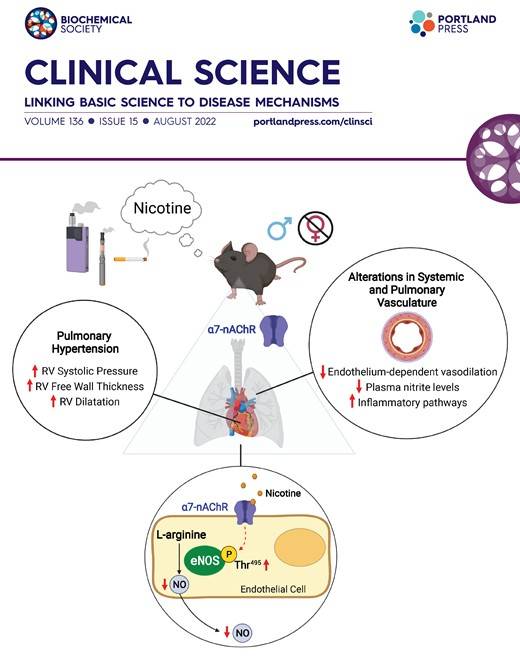 |
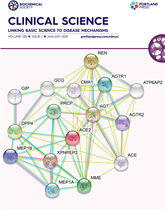 |
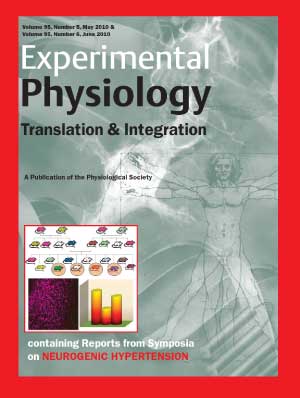 |
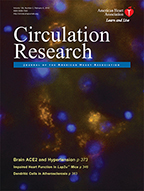 |
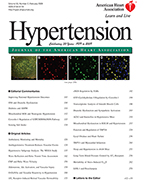 |
With prevalence as high as 55% for individuals aged 55 and older in United States, hypertension is a major risk factor contributing to cardiovascular diseases (CVD) and global mortality, hence remaining an increasingly important medical and public health issue. The role of the renin-angiotensin system (RAS) in the maintenance of normal blood pressure (BP) and in neuro-cardiovascular dysregulation leading to hypertension has been firmly established. Angiotensin (Ang)-II, by means of its type 1 receptor (AT1R), promotes increased sympathetic activity, salt and water reabsorption, vasoconstriction, aldosterone and vasopressin release and inflammation, all contributing to hypertension. By converting Ang-II into Ang-(1-7), ACE2 (Angiotensin Converting Enzyme type 2) acts as a pivotal player in the ACE2/Ang-(1-7)/Mas receptor compensatory axis of the RAS, capable of preventing the progression and reducing hypertension.
Project 1: Targeting ACE2 ubiquitination in hypertension (NIH funded)
However, our group was the first to show post-translational impairment of endogenous
ACE2 in hypertension.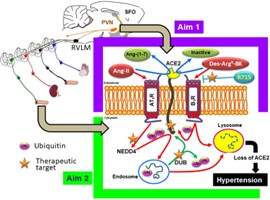 Notably, our laboratories reported that Ang-II mediates ACE2 ubiquitination and degradation
in lysosomes. The therapeutic potential of targeting this mechanism has not been investigated.
This project aims at providing new therapeutic strategies to target ACE2 ubiquitination,
originally described by our group, for the treatment of hypertension. The efficacy
of these strategies will be evaluated by their ability to prevent ACE2 internalization
and degradation and preserve ACE2 compensatory activity in both central nervous system
and vasculature within males and females, in the context of Ang-II-mediated hypertension.
This proposal uses unique and novel mouse models with neuron-specific expression or
deletion of hypothalamic neuronal AT1R and PVN-specific deletion of ACE2. In addition, we combine ACE2 ubiquitination mutants
with superior enzymatic activity and a new adeno-associated virus encoding an ubiquitin-deficient
ACE2 protein to assess the beneficial effects of preventing ACE2 degradation in hypertension.
We also combine some of these specific KO with optogenetic approaches, allowing us
to selectively activate neuronal populations.
Notably, our laboratories reported that Ang-II mediates ACE2 ubiquitination and degradation
in lysosomes. The therapeutic potential of targeting this mechanism has not been investigated.
This project aims at providing new therapeutic strategies to target ACE2 ubiquitination,
originally described by our group, for the treatment of hypertension. The efficacy
of these strategies will be evaluated by their ability to prevent ACE2 internalization
and degradation and preserve ACE2 compensatory activity in both central nervous system
and vasculature within males and females, in the context of Ang-II-mediated hypertension.
This proposal uses unique and novel mouse models with neuron-specific expression or
deletion of hypothalamic neuronal AT1R and PVN-specific deletion of ACE2. In addition, we combine ACE2 ubiquitination mutants
with superior enzymatic activity and a new adeno-associated virus encoding an ubiquitin-deficient
ACE2 protein to assess the beneficial effects of preventing ACE2 degradation in hypertension.
We also combine some of these specific KO with optogenetic approaches, allowing us
to selectively activate neuronal populations.
Project 2: Targeting ADAM17 maturation in resistant hypertension (NIH funded)
While numerous overexpression studies, from our group and others, have established
the benefits of ACE2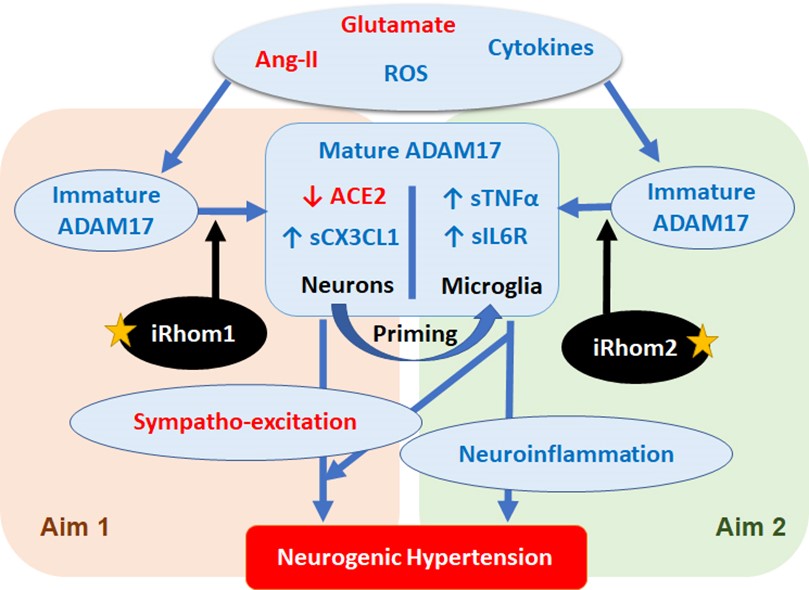 (Angiotensin Converting Enzyme type 2) in preventing the progression and improving
the treatment of hypertension (HTN) in experimental models, our group was the first
to demonstrate that ADAM17 (A Disintegrin And Metalloprotease) mediates ACE2 shedding
in neurogenic HTN, thus reducing ACE2 compensatory activity in mice and humans. ADAM17-mediated
ACE2 shedding, a process by which the protein ectodomain is cleaved from the plasma
membrane and secreted into the surrounding milieu. ADAM17 is thought to mediate neuroinflammation
through soluble TNFα, IL-6 trans-signaling, CX3CL1 and other cytokines, yet this mechanism
has not been studied in neurogenic HTN. DOCA-salt HTN is associated with increased
levels of TNFα, IL-6 and reduced ACE2 activity in the brain, while deletion of ADAM17
from neurons reduces BP, restores ACE2 activity and decreases pro-inflammatory cytokines.
Recent work shows that ADAM17 maturation is tightly regulated by rhomboid proteins
in the brain (iRhom1 in neurons and iRhom2 in microglia), opening the door for novel
targeting strategies. Accordingly, we hypothesize that targeting ADAM17 maturation
will reverse sympatho-excitation and neuro-inflammation in neurogenic HTN. This project
aims at targeting ADAM17 maturation in neurogenic HTN. In addition to clarifying how
ADAM17 activation spreads through and affects neuronal networks involved in cardiovascular
regulation, we will test our novel targeting strategy and evaluate how it affects
ADAM17 transport and function. To achieve this goal, we propose a translational approach
that will i) characterize the mechanisms and extent of ADAM17-mediated shedding in
pre-sympathetic neurons, and ii) determine its specificity and relevance in neuroinflammation
leading to neurogenic HTN. We use a combination of approaches such as: 1) iRhom1/2
silencing in vivo and in vitro, 2) in vitro activation and gain/loss of function studies
using human neurons and microglia and new conditional mouse model (Cx3CR1-ADAM17-Td-tomato
KO, 3) adoptive transfer of exosomes from hypertensive mice to the brain of normotensive
animals, 4) single cell genotyping with digital droplet qPCR, 5) retrograde labeling
to characterize BP- and immune system-relevant neurons and 6) wireless fiber photometry
to assess Ca++ imaging as an index of neuronal activity in conscious mice.
(Angiotensin Converting Enzyme type 2) in preventing the progression and improving
the treatment of hypertension (HTN) in experimental models, our group was the first
to demonstrate that ADAM17 (A Disintegrin And Metalloprotease) mediates ACE2 shedding
in neurogenic HTN, thus reducing ACE2 compensatory activity in mice and humans. ADAM17-mediated
ACE2 shedding, a process by which the protein ectodomain is cleaved from the plasma
membrane and secreted into the surrounding milieu. ADAM17 is thought to mediate neuroinflammation
through soluble TNFα, IL-6 trans-signaling, CX3CL1 and other cytokines, yet this mechanism
has not been studied in neurogenic HTN. DOCA-salt HTN is associated with increased
levels of TNFα, IL-6 and reduced ACE2 activity in the brain, while deletion of ADAM17
from neurons reduces BP, restores ACE2 activity and decreases pro-inflammatory cytokines.
Recent work shows that ADAM17 maturation is tightly regulated by rhomboid proteins
in the brain (iRhom1 in neurons and iRhom2 in microglia), opening the door for novel
targeting strategies. Accordingly, we hypothesize that targeting ADAM17 maturation
will reverse sympatho-excitation and neuro-inflammation in neurogenic HTN. This project
aims at targeting ADAM17 maturation in neurogenic HTN. In addition to clarifying how
ADAM17 activation spreads through and affects neuronal networks involved in cardiovascular
regulation, we will test our novel targeting strategy and evaluate how it affects
ADAM17 transport and function. To achieve this goal, we propose a translational approach
that will i) characterize the mechanisms and extent of ADAM17-mediated shedding in
pre-sympathetic neurons, and ii) determine its specificity and relevance in neuroinflammation
leading to neurogenic HTN. We use a combination of approaches such as: 1) iRhom1/2
silencing in vivo and in vitro, 2) in vitro activation and gain/loss of function studies
using human neurons and microglia and new conditional mouse model (Cx3CR1-ADAM17-Td-tomato
KO, 3) adoptive transfer of exosomes from hypertensive mice to the brain of normotensive
animals, 4) single cell genotyping with digital droplet qPCR, 5) retrograde labeling
to characterize BP- and immune system-relevant neurons and 6) wireless fiber photometry
to assess Ca++ imaging as an index of neuronal activity in conscious mice.
Project 3: miRNA targeting of hypertension and metabolic pathways (VA funded)
More than a thousand miRNA families have been identified to regulate RAS genes expression,
where their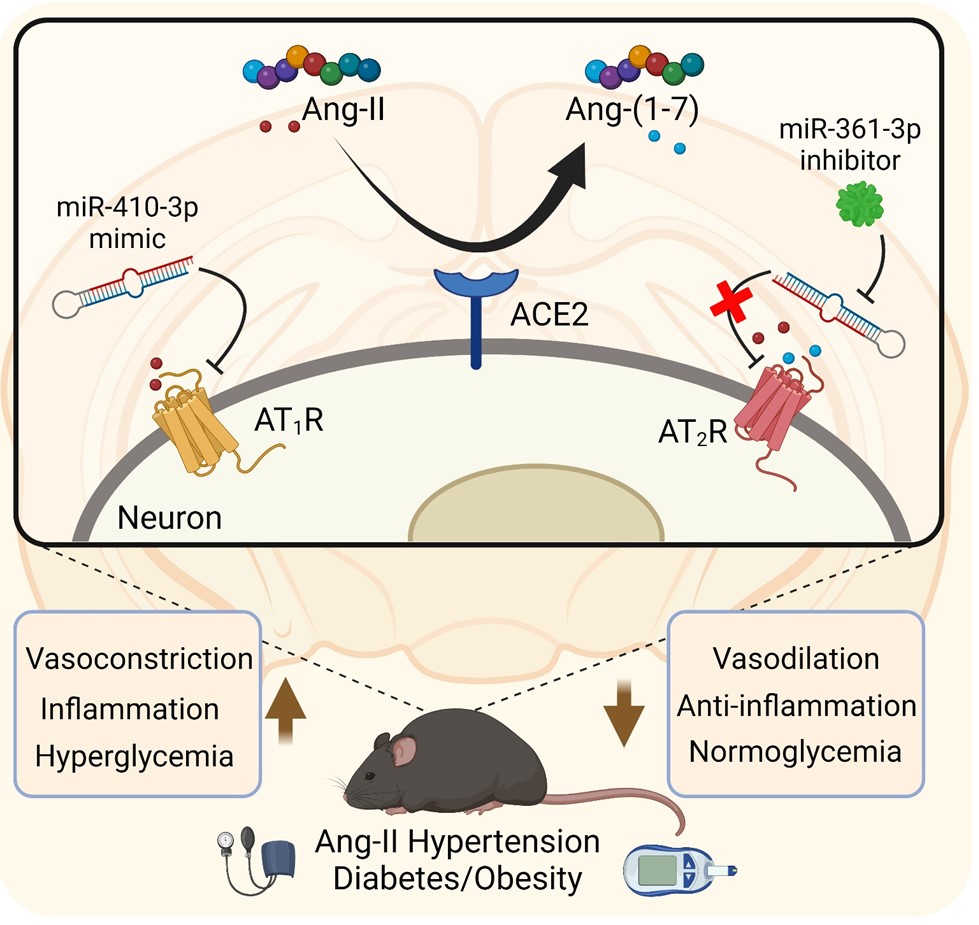 dysregulation has been associated with hypertension, cardiac ischemia and aging.
Our previous data show that perinatal programming with hypercaloric diet (HCD) leads
to increased BP and glycemic levels, as well as hypothalamic inflammation. This cardiometabolic
phenotype of programmed mice is associated with differential expression of hypothalamic
miRNA controlling angiotensin (Ang)-II type 1 (AT1R) and type 2 (AT2R) receptors compared to regular diet (RD)-fed mice. Interestingly, AT1R-targeting miRNA also showed the same expression pattern in an HCD-fed model that
exhibits obesity and hyperglycemia. Based on these observations, the central hypothesis
of this project is that dysregulation of miRNA targeting brain AT1R and AT2R is involved in the pathogenesis of CMD. To test this hypothesis, we will use state-of-the-art
in vitro and in vivo molecular and pharmacological tools to manipulate key miRNA,
targeting AT1R and AT2R, in hypertensive and obese/diabetic mice. We will take advantage of validated models
of Ang-II infusion to induce hypertension and HCD feeding to induce obesity and hyperglycemia
while manipulating miRNA expression.
dysregulation has been associated with hypertension, cardiac ischemia and aging.
Our previous data show that perinatal programming with hypercaloric diet (HCD) leads
to increased BP and glycemic levels, as well as hypothalamic inflammation. This cardiometabolic
phenotype of programmed mice is associated with differential expression of hypothalamic
miRNA controlling angiotensin (Ang)-II type 1 (AT1R) and type 2 (AT2R) receptors compared to regular diet (RD)-fed mice. Interestingly, AT1R-targeting miRNA also showed the same expression pattern in an HCD-fed model that
exhibits obesity and hyperglycemia. Based on these observations, the central hypothesis
of this project is that dysregulation of miRNA targeting brain AT1R and AT2R is involved in the pathogenesis of CMD. To test this hypothesis, we will use state-of-the-art
in vitro and in vivo molecular and pharmacological tools to manipulate key miRNA,
targeting AT1R and AT2R, in hypertensive and obese/diabetic mice. We will take advantage of validated models
of Ang-II infusion to induce hypertension and HCD feeding to induce obesity and hyperglycemia
while manipulating miRNA expression.
Please, find a complete list of the Lazartigues' lab publications here.
 |
Farrell Chatelain Medical Student |
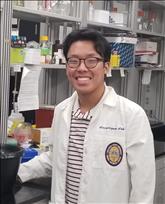 |
Kevin Miao Undergraduate Student
|
 |
Uma Priya Mohan Postdoctoral Fellow |
 |
Camila Paes Undergraduate Student |
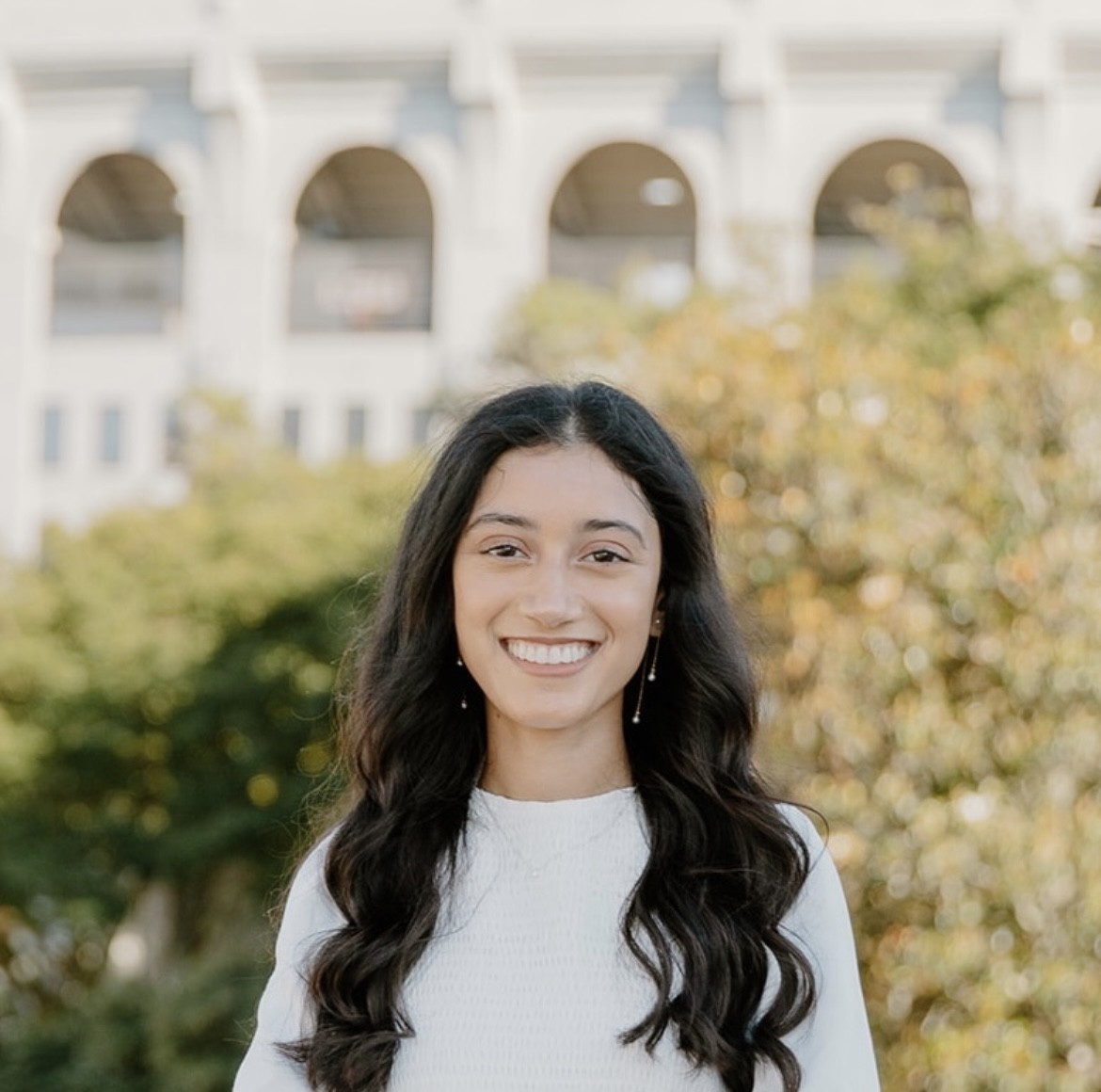 |
Ayushi Patel Graduate Student |
 |
Luke Restivo Graduate Student |
|
|
Vahideh Tarhriz Postdoctoral Research Fellow |
Former Lab Members:
-
Marzieh Kafami, PhD (Postdoctoral Fellow: 2024-2025). Assistant Professor in Sabzevar University Medical Sciences
-
Mohammed Alnoud, PhD (Postdoctoral Fellow: 2022-2024). Postdoctoral Fellow in UT Rio Grande Valley
- Mazher Mohammed , PhD (Postdoctoral Associate: 2020-2022). Postdoctoral Researcher at Mount Sinai.
- Clara Berdasco, PhD (Postdoctoral Associate: 2020-2022). Postdoctoral Researcher in Rutgers, New Jersey.
- Navya Lakkappa, PhD (Postdoctoral Associate: 2019-2022). Postdoctoral Researcher in Dublin, Ireland.
- Md Abdul Awoal (Master Student: 2019-2020). Research Associate, Tulane University, New Orleans, LA.
- Charlotte Pearson (Research Associate: 2020-2021). 4th year Medical Student at LSUHSC-NO in New Orleans, LA.
- Tamara M. Morris, PhD (Research Associate: 2019-2020). Technology Licensing Associate at Penn State University.
- Nilgun Kuru (Visiting Professor: 2019-2020). Associate Professor, Department of Anatomy, Selcuk University, Konya, Turkey.
- Jiaxi Xu, PhD (Postdoctoral Associate: 2014-2019). Assistant Professor at Xi'an Jiaotong University, PR China.
- Snigdha Mukerjee, PhD (PhD Student: 2014-2019). Postdoctoral Researcher at Vanderbilt University, Nashville, TN.
- Alynne Carvalho-Galvao (Exchange PhD Student: 2017-2018). PhD student at the Universidade Federal da Paraiba, Joao Pessoa, Brazil.
- Tyler Basting PhD (Postdoctoral Associate: 2016-2018). Scientific Director at BOLDSCIENCE
- Alberto Mendoza, MD (Clinician Scientist: 2013-2015). Cardiology Pediatrician at the University of Texas, Corpus Christi, TX.
- Thyago Moreira de Queiroz (Exchange PhD Student: 2013-2014).Professor at the Federal University de Ceara, Fortaleza, Brazil.
- Matthew Deshotels, MD(Master’s Student: 2012-2013). Instructor at Baylor College in Houston, TX.
- Harshita Chodavarapu, PhD (PhD Student: 2012-2017). Pharmacometrician at Certara.
- Melissa D. Scroggin, MSc (Master’s Student: 2011-2013). Doctor of Physical Therapy, New Orleans, LA.
- Kim Brint Pedersen, PhD (Postdoctoral Associate: 2010-2015). Assistant Professor of Pharmacology at LSUHSC-NO in New Orleans, LA
- Srinivas Sriramula, PhD (Postdoctoral Associate: 2010-2015). Associate Professor of Pharmacology at the East Carolina University in Greenville, NC.
- Kavaljit Chhabra, PhD (PhD Student: 2009-2013). Associate Professor at the University of Kentucky Lexington, KY
- Ping Xu, MD-PhD (Postdoctoral Associate: 2009-2010). Medical Affairs Manager at Danaher, San Francisco Bay Area, CA.
- Yanhui Cai, MSc (Graduate Student: 2009-2010). Scientist at Gilead Pharmaceuticals, CA.
- Sharell M. Bindom, PhD (MD-PhD Student: 2006-2009). Neonatologist in Hollywood, FL.
- Huijing Xia, PhD (Postdoctoral Associate: 2006-2011). Associate Professor of Pharmacology at LSUHSC-NO in New Orleans, LA.
- Yumei Feng, MD-Ph.D. (Postdoctoral Associate: 2006-2010). Professor of Pharmacology and Physiology at the University of Rochester, NY.

